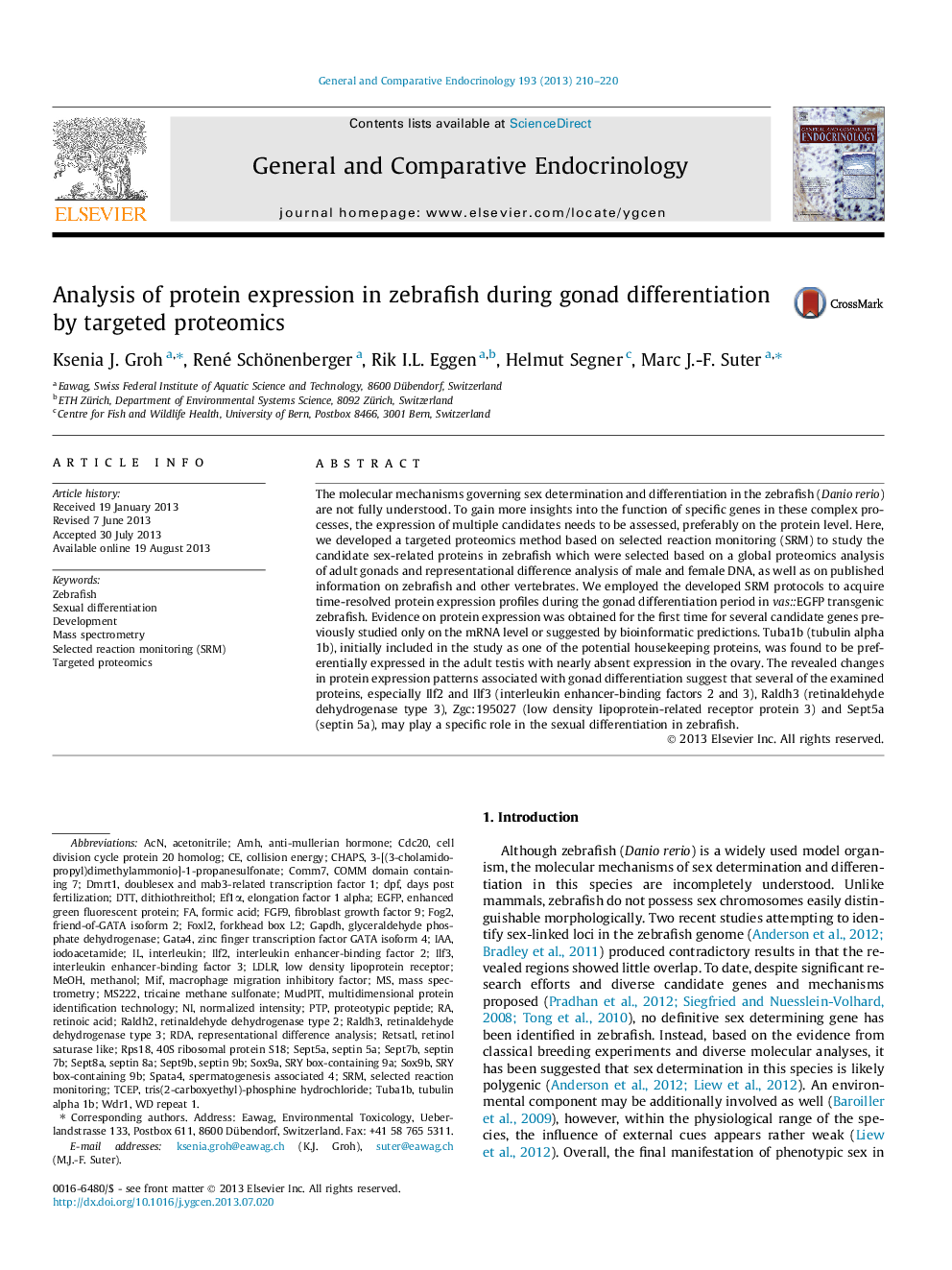| Article ID | Journal | Published Year | Pages | File Type |
|---|---|---|---|---|
| 2800285 | General and Comparative Endocrinology | 2013 | 11 Pages |
•Protein expression of sex-related genes was studied in zebrafish during gonad differentiation.•Targeted proteomics based on selected reaction monitoring increased detection sensitivity.•In adult gonads, Tuba1b (tubulin alpha 1b) was found to be preferentially expressed in testis.•Ilf2, Ilf3, Raldh3, Sept5a and Zgc:195027 may play a role in zebrafish sex differentiation.
The molecular mechanisms governing sex determination and differentiation in the zebrafish (Danio rerio) are not fully understood. To gain more insights into the function of specific genes in these complex processes, the expression of multiple candidates needs to be assessed, preferably on the protein level. Here, we developed a targeted proteomics method based on selected reaction monitoring (SRM) to study the candidate sex-related proteins in zebrafish which were selected based on a global proteomics analysis of adult gonads and representational difference analysis of male and female DNA, as well as on published information on zebrafish and other vertebrates. We employed the developed SRM protocols to acquire time-resolved protein expression profiles during the gonad differentiation period in vas::EGFP transgenic zebrafish. Evidence on protein expression was obtained for the first time for several candidate genes previously studied only on the mRNA level or suggested by bioinformatic predictions. Tuba1b (tubulin alpha 1b), initially included in the study as one of the potential housekeeping proteins, was found to be preferentially expressed in the adult testis with nearly absent expression in the ovary. The revealed changes in protein expression patterns associated with gonad differentiation suggest that several of the examined proteins, especially Ilf2 and Ilf3 (interleukin enhancer-binding factors 2 and 3), Raldh3 (retinaldehyde dehydrogenase type 3), Zgc:195027 (low density lipoprotein-related receptor protein 3) and Sept5a (septin 5a), may play a specific role in the sexual differentiation in zebrafish.
